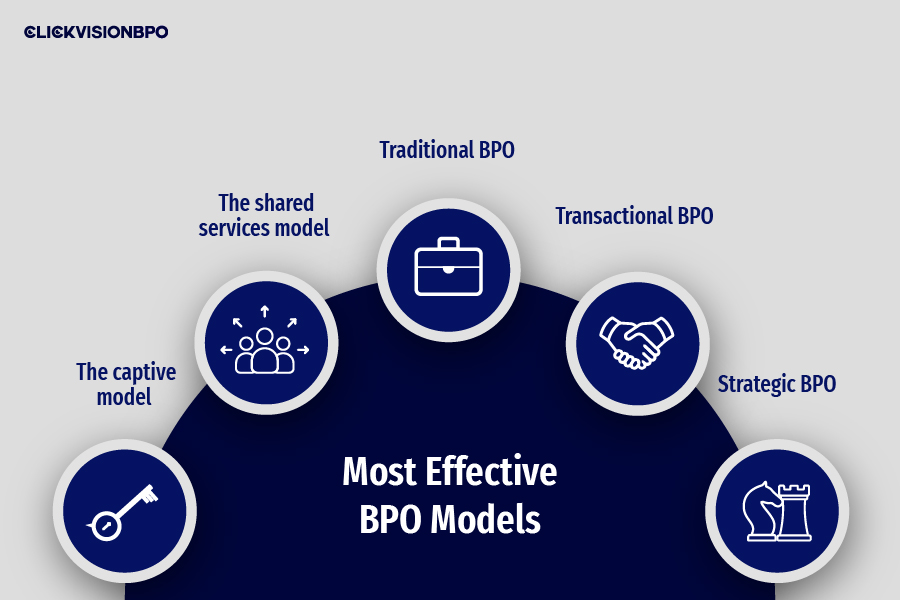Insurance is an ever-changing sector, which often makes it difficult for companies to keep up. This is why managing operations effectively has become increasingly challenging for insurance providers. Due to such reasons many insurance agencies turn to business process outsourcing (BPO).
This article delves into the intricacies of the benefits of outsourcing insurance processes, showcasing how this may revolutionize operations and spur growth. We will also discuss some of the best BPO models and their applicability.
Benefits of Outsourcing Insurance Processes
There are many options to choose from when it comes to outsourcing. However, in the insurance industry, companies usually outsource processes such as customer service, administration, data processing, etc.
Businesses that outsource these processes can expect a range of benefits. To learn more about the potential benefits of BPO for insurance, read through the section below:

Source: freepik.com
Cost savings
One of the biggest benefits of outsourcing insurance processes is their ability to significantly reduce operational costs. Simply put, transitioning from maintaining in-house operations to leveraging third-party expert providers is a step toward financial efficiency.
So, how exactly can an outsourcing service such as CLICKVISION BPO help insurance agencies cut down on spending?
An agency will gain financial relief by simply eliminating real estate, labor, equipment, and other spending associated with having an in-house team. The outsourcing company will offer a team of highly qualified professionals who specialize in a variety of support roles required by insurance agencies. In turn, this will also allow for financial redirection of saved funds in core business areas.
Improved efficiency
Enhanced efficiency is another benefit that comes with outsourcing. The majority of insurance back office operations and insurance processes are repetitive in nature. These usually include insurance data entry, claim processing, preparing documentation, etc. Managing these internally within the organization is time-consuming and prevents the staff from focusing on aspects such as innovation or market expansion.
BPO outsourcing offers access to a team of experts who can help free up internal resources, allowing you and your staff to dedicate more attention to the most important aspects of your business. Experienced personnel managing all back-office functions will streamline operations and enhance efficiency.
Enhanced customer service
In today’s competitive landscape, exceptional customer service is paramount. Outsourcing insurance processes enables access to specialized teams committed to elevating customer satisfaction levels.
One of the key benefits of outsourcing is that most outsourcing providers work with advanced CRM and have a team of employees specifically trained in using such programs and offering exceptional service.
BPO outsourcing helps companies gain access to quality personnel and avoid investing in training programs or purchasing CRM systems. Overall, having a team of highly skilled support agents will ensure customers feel more support and confidence in their decisions, resulting in a more positive customer experience.
Seamless growth
Outsourcing presents a strategic pathway for insurance companies to scale their operations without the proportional increase in administrative burdens. Company growth and expansion might not be the most obvious benefits of BPO for insurance, which is why placing a stronger emphasis on this aspect is important.
So, how does outsourcing contribute to business expansion? By outsourcing part of their in-house operations, insurance agencies find themselves in a more favorable position. Put simply, with outsourcing specialists covering administrative and support duties, insurance personnel may focus their efforts on core business functions.
Better said, outsourcing allows insurers to channel their focus and resources toward innovation, competitive product development, and market expansion. This strategic realignment ensures that growth efforts are concentrated on areas directly contributing to competitive advantage and market leadership.

Source: freepik.com / Photo Contributor: nmmobile789
Most Effective BPO Models
Diverse models mark the landscape of BPO in insurance, each catering to specific operational needs:
The captive model
The biggest advantage of the captive model is that it offers insurers complete control over outsourced processes. When this model is used, the insurer works with an external provider to establish an offshore subsidiary. The key aspect of the captive model is that the subsidiary is designed in complete alignment with the insurer’s needs.
The shared services model
The shared services model provides cost-effective solutions through shared infrastructure and resources. The advantage of this model is obvious – by sharing facilities and resources, the insurer cuts down on spending. This operational model is typically used in non-core claims processing and policy administration.
Traditional BPO
Traditional BPO focuses on outsourcing specific tasks to mitigate workforce shortages. This is usually done when an insurer recognizes a growth opportunity. Instead of investing in an in-house team, they outsource a provider to help achieve the specific tasks. Traditional BPO is also utilized by insurance companies that cannot meet customer demand due to staff shortages.
Transactional BPO
Transactional BPO is mostly utilized by insurance companies in situations when they are short in time and cannot manage their resources to solve an issue. This is why transactional BPO is often described as the model that helps solve specific issues to optimize workflow.
To explain its value, here’s an example. For instance, if one of the accountants takes a long leave during the busiest season, you can outsource the accounting responsibilities to a transactional BPO.
Strategic BPO
Strategic BPO embraces a holistic view of operations, aligning outsourcing strategies with overall business objectives to enhance efficiency and performance. While other models, such as transactional and traditional BPO, focus on a specific issue, strategic BPO takes the organization’s operations as a whole.
However, strategy-based BPO may differ based on the outsourcing strategy involved. Many insurance companies choose project-based outsourcing, which is considered a subcategory of strategic BPO. In project-based outsourcing, the insurance company outsources specific services for a one-time project. Such outsourcing is usually best for managing peak season or ensuring the completion of a strict timeline-based project.

Conclusion
Reflecting on the benefits of outsourcing insurance processes, it is evident that it offers a range of advantages. Outsourcing is a valuable solution that can enhance efficiency and customer satisfaction and allow for strategic growth within an insurance company. It’s worth remembering that outsourcing operations tend to lower the insurer’s overall expenses. All of this is achievable through different BPO models.
As explained, each model has a specific purpose, and insurance agencies may choose one based on their needs and preferences. We must also add that recognizing the benefits of outsourcing is critical as it may lead to substantial improvements in operational performance and competitive positioning.

With a strong background in the marketing industry and healthcare leadership roles, Filip is responsible for CLICKVISIONBPO’s sales strategies and onboarding new clients. With a passion for sharing insights gained from his experience, he also shares valuable knowledge through industry related articles.
